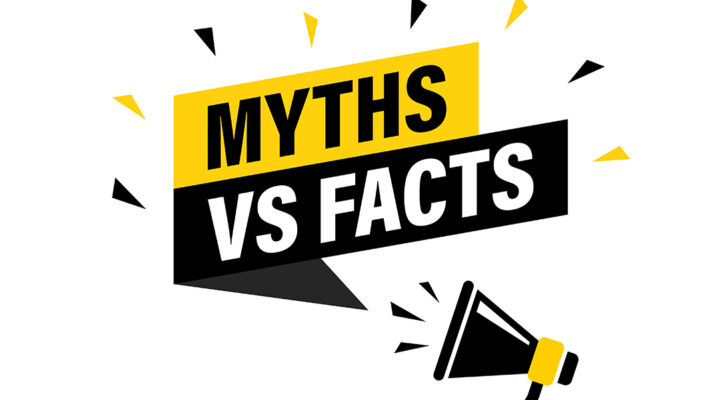Do you believe any of these? Really?
By Deborah Jeanne Sergeant
Maybe it was information passed down to you. Or perhaps you always assumed something to be true. But it’s time to clear up a few myths about women’s health.
Myth: Working out is always unpleasant and usually painful if you want to see results.
Truth: “We’re encouraging people to have a positive outlook on exercise and to have a reasonable expectation,” said Kevin Gretsky, a physical therapist at Brighton Physical Therapy in Syracuse.
Myth: Exercising hard is the only way to be healthy.
Truth: “‘More’ isn’t always ‘better,’” Gretsky said. “Fitness should be built around your goals.”
A personal trainer or physical therapist can advise on what you should do and how hard you should work out to reach your goals.
Myth: Aerobic exercise is all you need to be healthy.
Truth: “Aerobic exercise, weight training and all of it is important and doing it under the guidance of a professional,” Gretsky said. “Thinking about fitness and wellness and weight loss, is important to have a multi-disciplined approach.”
Myth: You should be the only one responsible improving your health.
Truth: “Have a physical therapist for injuries, a nutritionist for diet, a doctor monitoring your blood pressure and how it’s responding,” Gretsky said.
Working with a health team is important because it helps improve both the safety and efficacy of making healthy lifestyle choices.
Myth: I can’t work out because I’m not in good enough shape.
Truth: “That’s untrue. You don’t have to be in good shape to start,” said Ashley Capenos, nationally certified Pilates trainer at Metro Fitness Downtown in Syracuse. “I’ve seen people with MS, ALS, scoliosis and older people who had polio as a kid with different sizes of legs.”
Selecting a form of exercise or physical activity that works for you and your goals matters the most.
Myth: The number on the scale is the most important metric for health.
Truth: “When people start working with me, they think they’ll see weight loss,” Capenos said. “I tell them to throw the scale away. Weight is not a value correlating directly with their health. What you’re looking for is how you’re feeling, your mood and how your clothes are fitting. If you have the energy to keep up with two children under three, you’re probably in good shape. Weight is not an indication of overall health and wellbeing. The BMI chart has warped us all.”
Myth: Only skinny women are healthy women.
Truth: “They could be ‘skinny fat,” Capenos said. “That person could be struggling with eating disorders and mental health. The body is deteriorating, but they look great. Women especially see it as they’re struggling mentally and losing weight.”
Weight also may not reflect the amount of muscle a particular person carries. A lighter person the same height may have less muscle and be less healthy.
Myth: Making small lifestyle changes won’t make a difference in my overall health.
Truth: “Your healthy lifestyle choices all add up,” Capenos said.
To make a difference in both short-term and long-term health, drinking more water instead of sugary beverages; eat more nutrient-rich produce instead of processed foods; get sufficient rest; take more time for self-care and stress management; and exercise regularly while incorporating more movement each day.
“If you’re looking to set a serious change, schedule 30 minutes of ‘me’ time,” Capenos said. “Do something until the alarm goes off. Don’t let yourself get up and change the laundry over. There will never be a day we don’t have laundry. I look at fitness as a ‘care task.’”
Myth: Women who lift weights will look bulky like a man.
Truth: “Because women have a different hormone base than men, having much less testosterone than men, they will not get big and bulky through resistance training,” said Jill Murphy, certified personal trainer and co-owner of Mission Fitness in Syracuse. “The only way they would get bigger is if they were doing resistance training and building muscle, but not doing the proper diet and gaining body fat around the muscle causing it to look bigger. But again, they’re never going to get big and bulky like men, even if they train in the same manner. They don’t have the hormones that men have to do so.”

